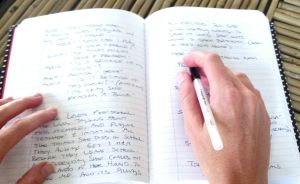The holiday season can be a joyful time. It also freaks lots of us out for many reasons. Many of my clients have been talking about their holiday fears and have been figuring out strategies to make the season less stressful. Here are 5 tips I’ve gleaned from our sessions:
1. Figure out your expectations. Speak or write your fantasies, and don’t worry if they sound naive, silly or childish. Making them transparent helps you to modify them so that they are in line with reality. Do your fantasies include a perfect meal, perfect family, perfect gifts? Be kind to yourself, and remember that “good enough” might be better than perfection.
2. If you’re dealing with an addiction, set aside time to sort out your relapse prevention plans.
3. Is this a time when you feel the loss of a loved one? Make room for feelings of sadness and grief, rather than covering them over. Tara Brach’s RAIN approach is a good one for coping with difficult feelings.
4. Don’t disrupt your self-care routines too much. It’s easy for them to fall away if you’re travelling or hosting. Remember that the basics–sleep, exercise and healthy eating–keep us balanced. What else helps? Time alone? Spiritual practice? Connecting with friends and community?
5. If you’re not into celebrating holidays, what do you need for yourself during this holiday season? Some of my secular clients feel glum on major holidays because the rest of the world (or it can feel that way) is busy being festive. Create fun and meaningful activities for those days. For example, many people see movies or stay home and enjoy a day of much-needed quiet. Find out what works for you and consider creating your own traditions.
Wishing you a relaxed and enjoyable season! I’ll be away Dec 23-Jan 5, practicing these tips. 😉

